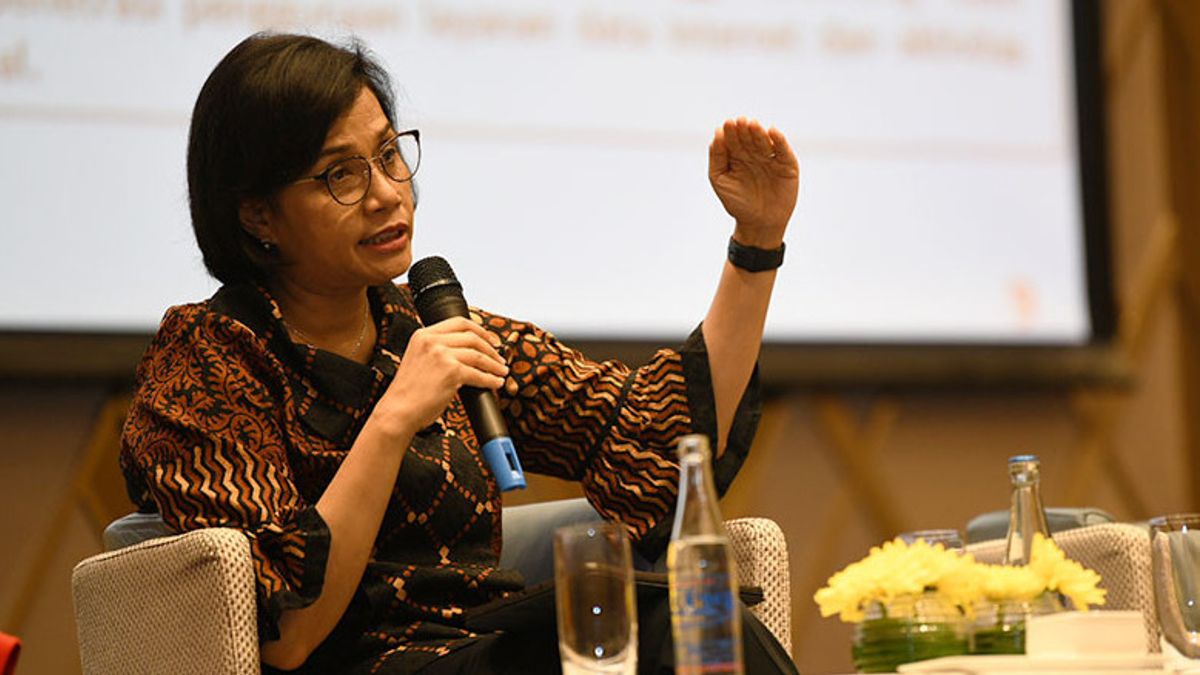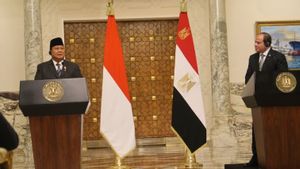JAKARTA - Minister of Finance Sri Mulyani Indrawati revealed that currently the Indonesian economy continues to recover after being hit by the wave of the COVID-19 pandemic. However, he acknowledged that the economic recovery, both globally and in Indonesia, did not always run smoothly and easily. Indonesia is a few of the countries that have been able to recover so that the real gross domestic product has already passed the pre-pandemic period.
"Although the recovery continues at this time, we also see that there are global risks that need to be watched out for. First, with the occurrence of very high inflation, the acceleration of monetary policy normalization by developed countries, especially in the United States, will have a tremendous impact," he said in a Virtual Seminar The 74th LPPI, last Thursday, April 21.
Not only that, he also reminded about the geopolitical conflict that occurred between Russia and Ukraine which had a very sharp propagation effect on commodity prices, especially commodities, energy and food.
"Increased prices, both energy and food, as well as rising interest rates due to monetary tightening will certainly threaten and create downward risks for the prospects for global economic growth and could also put pressure on the Indonesian economy," he explained.
With the economic context and global risks, he continued, Indonesia is currently trying to recover the economy. Not only recovering, but also wanting to build a stronger economic foundation.
"Various initial indicators or leading indicators show that in the first quarter of 2022, our economic recovery will continue. Mainly supported both from the demand side and from the supply side," added Sri Mulyani.
In terms of the financial sector, he said, Indonesia is also one of the few countries whose financial sector stability is also maintained. Even the performance of the stock market has strengthened by 6.2 percent compared to the position at the beginning of this year.
"Similarly, the rupiah exchange rate is relatively stable and inflation can still be maintained. This is very different from various countries which are currently facing high inflation and the same with fluctuations in both the stock market and the exchange rate," he said.
Furthermore, he added, Indonesia is also experiencing a strengthening in the balance of payments. With the significant increase in exports, Indonesia's trade balance even recorded a surplus of more than 20 months.
He added that although Indonesia's economic recovery was also running consistently, it did not mean that there were no risks. Our domestic economic growth in 2021 is 3.7 percent.
"Of course we still need to push it even higher so that job opportunities occur and our efforts to reduce poverty can continue to be increased," he continued.
For that, he continued, the State Budget as one of the most important policy instruments has an extraordinary role, working extraordinarily hard since 2020 when Indonesia was hit by a pandemic in early 2020 until now.
"We hope that with measures in the fiscal sector that are supportive of recovery, the financial sector can and will continue to be supported, especially banking institutions, so that in 2022 we can achieve economic growth of above 5 percent," he concluded.
The English, Chinese, Japanese, Arabic, and French versions are automatically generated by the AI. So there may still be inaccuracies in translating, please always see Indonesian as our main language. (system supported by DigitalSiber.id)













